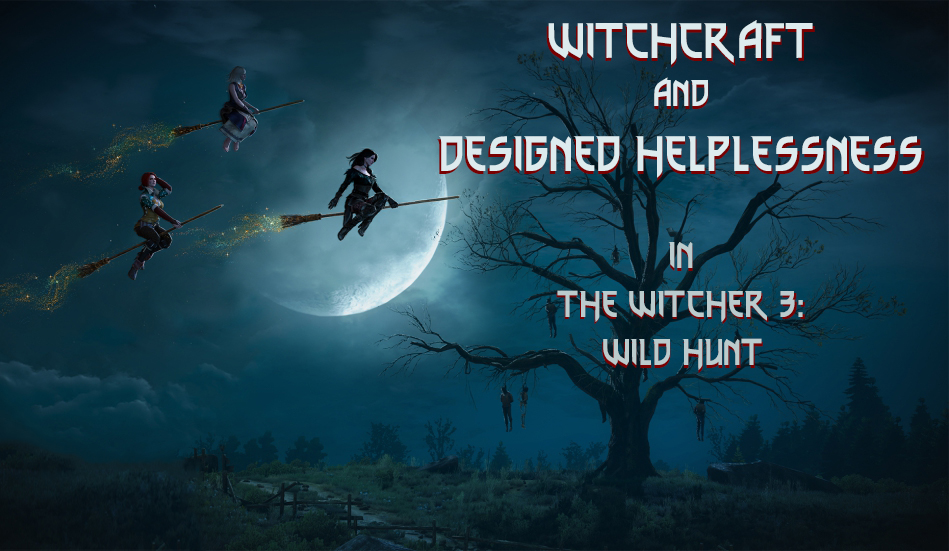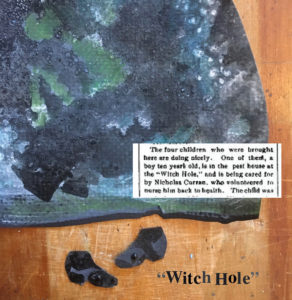Graduate student researchers in the Screen Cultures and Curatorial Studies program at Queen's University share their research on the figure of the witch in media.
Emily Sanders explores the figure of the witch as adjacent to the werewolf, employing the theoretical lens of the abject through looking at John Fawcett’s Canadian horror film, Ginger Snaps (2000).
Darby Huk examines the various depictions of witchcraft and magic in the 2016 CD Projekt Red video game, The Witcher 3: Wild Hunt, focusing on the state-sanctioned burning and persecution of magic users in Wild Hunt’s fictional city of Novigrad.
Peggy Fussell presents The Pest House at Witch Hole - a story in progress, an animation-in-progress, loosely based on an 1895 newspaper article about a boy who was remanded to a "pest house", a 19th century quarantine location for typhoid fever patients on Mt. Desert Island, Maine. This work reflects on the ways that stories and folktales about witches are some of the earliest forms of othering, exploring how “bad actors” are portrayed in children’s media.
The SCCS panelists will be joined by undergraduate students from FILM 435: The Figure of the Witch in Popular Culture. Short films by Jade Courchesne, Naomi Frooman, and Nathaniel Trask will begin the panel. Afterwards, Amy Cai, Allie Roberts and Madison Shields will serve as discussants.
Speakers:
Emily Sanders, "The Witch and the Werewolf: abject feminine bodies in John Fawcett's Ginger Snaps (2000)"
Emily Sanders (she/her) is a PhD Candidate at Queen's University in their Screen Cultures and Curatorial Studies Graduate Program. Areas of research interest include Canadian cinema in the 1980s and 90s, posthumanism, abject theory, gender studies, and film-philosophy.
Darby Huk, "Witchcraft and Designed Helplessness in The Witcher 3: Wild Hunt"
Darby Huk is a graduate student in the Screen Cultures and Curatorial Studies program at Queen’s University. Her research is focused on video games and performance, with an interest in how emotions change when you are an active participant in a story, rather than just a passive audience member. She is an advocate for more feminist games, more boundary breaking games, and overall, more time for everyone to play more.
Peggy Fussel "The Pest House at Witch Hole - a story in progress""
Peggy Fussell (she/her) is a PhD student in Screen Cultures and Curatorial Studies at Queen’s University. She an animator and teaching artist. Peggy creates learning activities for museums, schools, and public gardens/arboretums. Her research interests include the history of animation, perception and curiosity.


